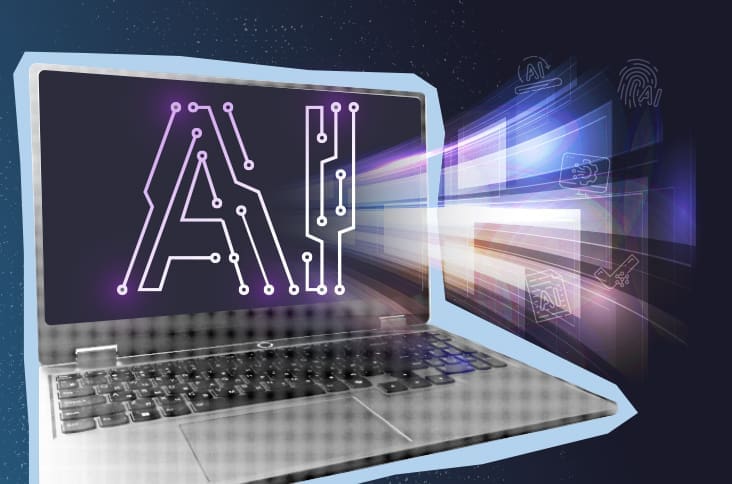
From Inevitable to Essential: 10 Ways AI is Transforming Procurement
March 21, 2025Artificial intelligence (AI) in procurement is no longer a futuristic concept—it’s happening now, and it’s transforming the way teams operate. From automating tedious tasks to enabling data-driven decision-making, AI is helping procurement professionals work smarter, not harder. Agencies across the public sector are forming AI task forces and exploring new ways to enhance efficiency, compliance, and supplier collaboration. Whether streamlining RFPs or improving risk management, AI is proving to be an essential tool, not just an optional upgrade.
In this post, we’ll explore 10 key ways AI is revolutionizing procurement and why embracing it now is critical for future success.
1. AI Adoption Is No Longer Optional
Procurement teams are recognizing that AI is critical for efficiency, accuracy, and strategic decision-making. Many state agencies (following my numerous discussions at NASPO Exchange in Vegas last week) are already forming AI task forces to explore implementation.

2. AI as an Augmentation, Not a Replacement
AI will never replace procurement professionals—it enhances their capabilities. By automating tedious processes, AI allows teams to focus on high-value tasks like supplier strategy, negotiations, and policy improvements.
3. Automation of Repetitive Tasks
AI takes over manual, time-consuming activities such as RFP authoring, bid evaluation, supplier risk assessments, and contract lifecycle management, freeing up procurement teams to focus on strategic initiatives.
4. Data-Driven Decision-Making, Simplified
AI-powered reporting tools eliminate the need for complex training or manual dashboard creation. Users can simply chat with the system—similar to ChatGPT—and instantly generate reports, dashboards, and insights. This capability was showcased at the inaugural SOVRA Summit.
5. Instant Executive Summaries
AI can automatically generate concise, 1-page summaries from a set of reports, highlighting key trends and insights, making it easy for procurement leaders to communicate data-driven decisions with executives. This was also demonstrated at the Summit, leveraging AWS technology, enabling procurement leaders to quickly communicate data-driven decisions.

6. Proactive vs. Reactive Procurement
With AI-driven insights, teams can shift from a reactive to a proactive approach, optimizing supplier performance and improving compliance.
7. Risk and Compliance Management
AI continuously monitors procurement activities for fraud, policy violations, and inefficiencies, ensuring greater transparency and accountability.
8. AI as a Talent Enabler
AI tools not only streamline procurement tasks but also make onboarding easier for new hires and attract younger talent (which is one of the key challenges of public sector procurement). New procurement professionals can get up to speed faster with AI-assisted workflows and guided insights.
9. Challenges and Considerations
While AI offers immense benefits, procurement leaders must address concerns like data quality, change management, and ethical AI use. AI is not magic; it’s only as good as the data it processes.

10. Future-Proofing Procurement
Agencies that integrate AI now will be better positioned to adapt to regulatory changes, evolving supplier markets, and increasing budget scrutiny.
In conclusion…
AI is not just an emerging trend in procurement—it’s the key to staying competitive, agile, and efficient in an increasingly complex landscape. By leveraging AI for automation, strategic insights, and compliance management, procurement teams can proactively tackle challenges rather than reacting to them.
Agencies that invest in AI today will be better prepared for evolving regulations, shifting supplier markets, and the growing demands of digital transformation. The future of procurement is AI-powered, but success lies in a balanced approach—one that enhances human expertise rather than replacing it. By embracing AI thoughtfully, procurement teams can harness its power while ensuring human expertise remains at the core of strategic decision-making. The question is no longer if AI will be part of procurement, but how effectively teams will integrate it to drive better outcomes.
For the latest public procurement trends, check out our ebook here.
And of course, stay up to date with all the latest things SOVRA by following us here on Linkedin.

About the author
Thierry Jaffry
Thierry is a global strategic growth executive with 25 years of experience in building up and transforming high-growth businesses in B2B SAAS (private sector and governments), and recognized as a Procurement technology thought leader through multiple industry awards.
